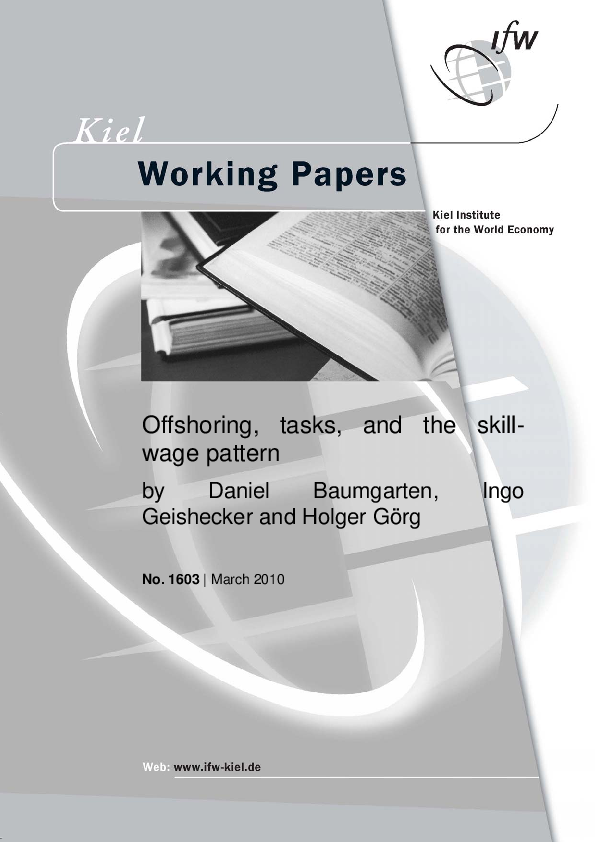Autoren
Erscheinungsdatum
JEL Classification
Schlagworte
Europa
Direktinvestitionen
Internationaler Handel
Arbeitsmarkt
The paper investigates the relationship between offshoring, wages, and the ease with which individuals' tasks can be offshored. Our analysis relates to recent theoretical contributions arguing that there is only a loose relationship between the suitability of a task for offshoring and the associated skill level. Accordingly, wage effects of offshoring can be very heterogeneous within skill groups. We test this hypothesis by combining micro-level information on wages and demographic and workplace characteristics as well as occupational information relating to the degree of offshorability with industry-level data on offshoring. Our main results suggest that in partial equilibrium, wage effects of offshoring are fairly modest but far from homogeneous and depend significantly on the extent to which the respective task requires personal interaction or can be described as non-routine. When allowing for cross-industry movement of workers, i.e., looking at a situation closer to general equilibrium, the magnitude of the wage effects of offshoring becomes substantial. Low- and medium-skilled workers experience significant wage cuts due to offshoring which, however, again strongly depend on the degree of personal interaction and non-routine content.







